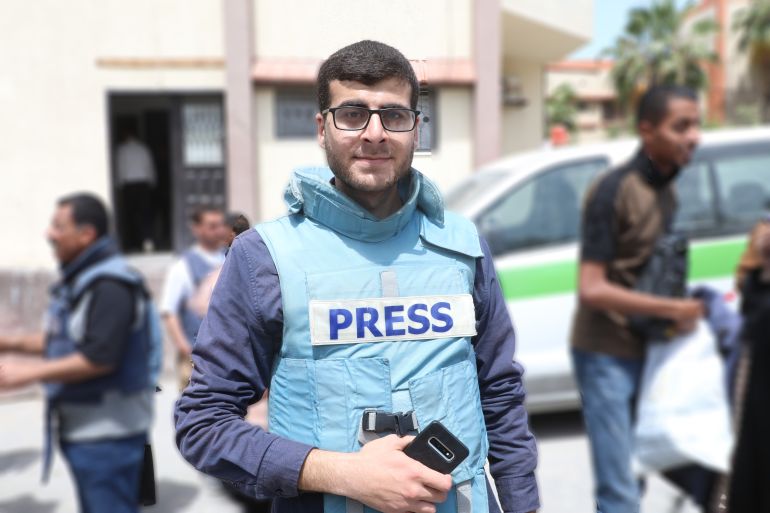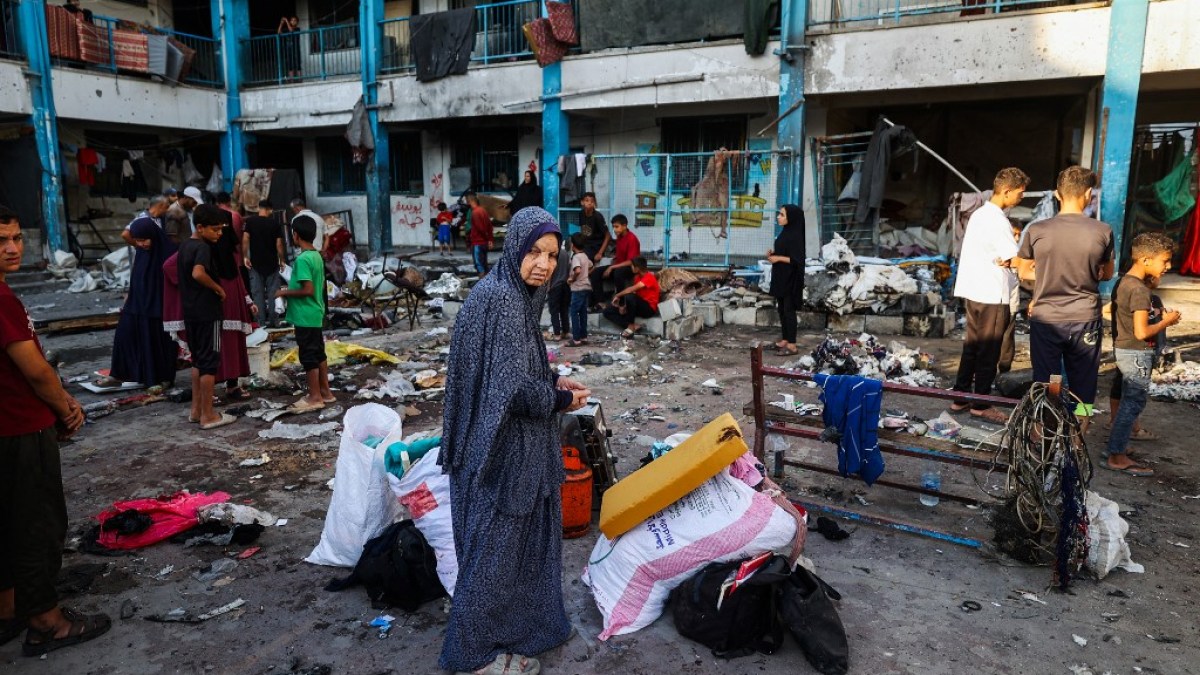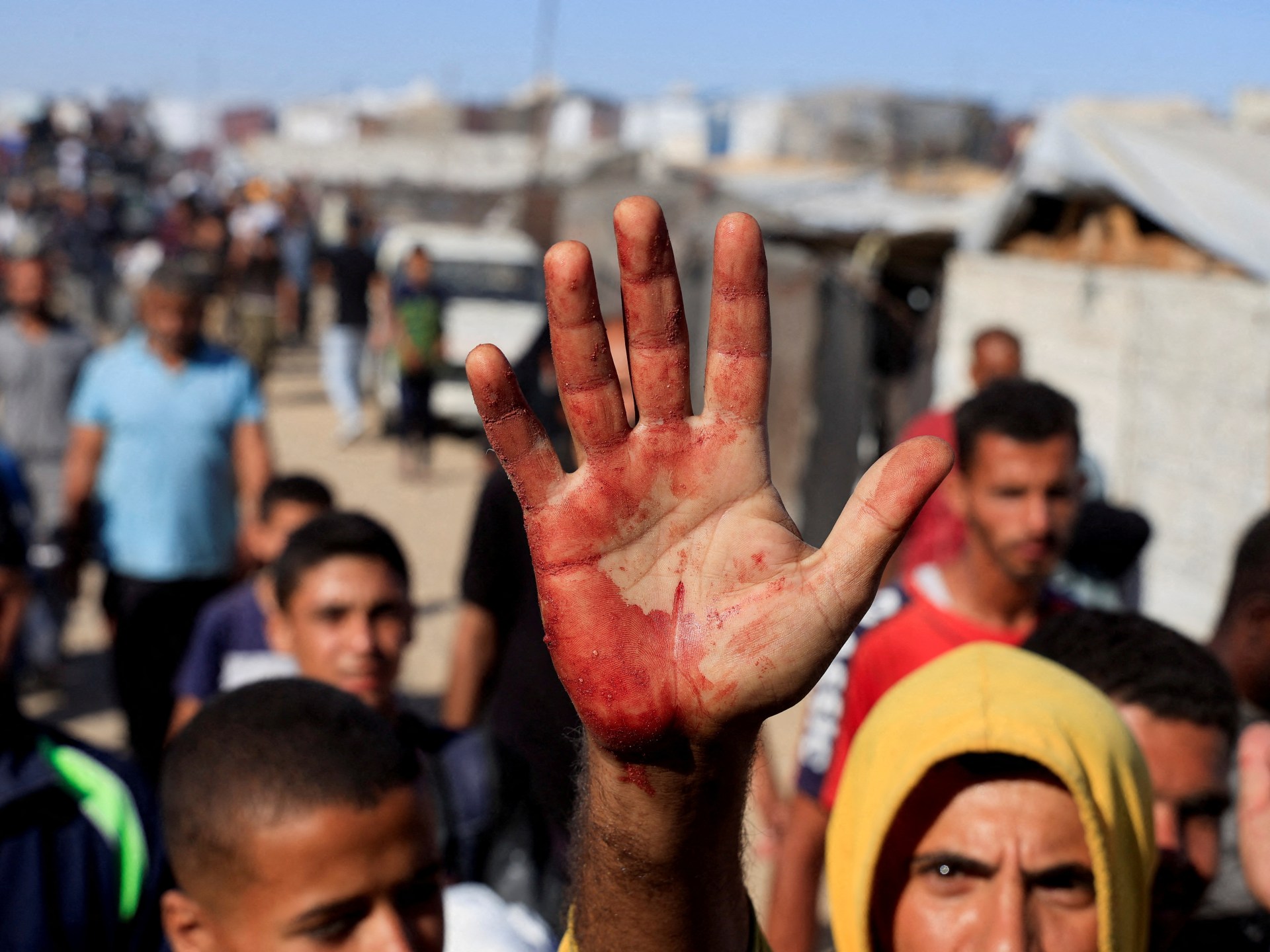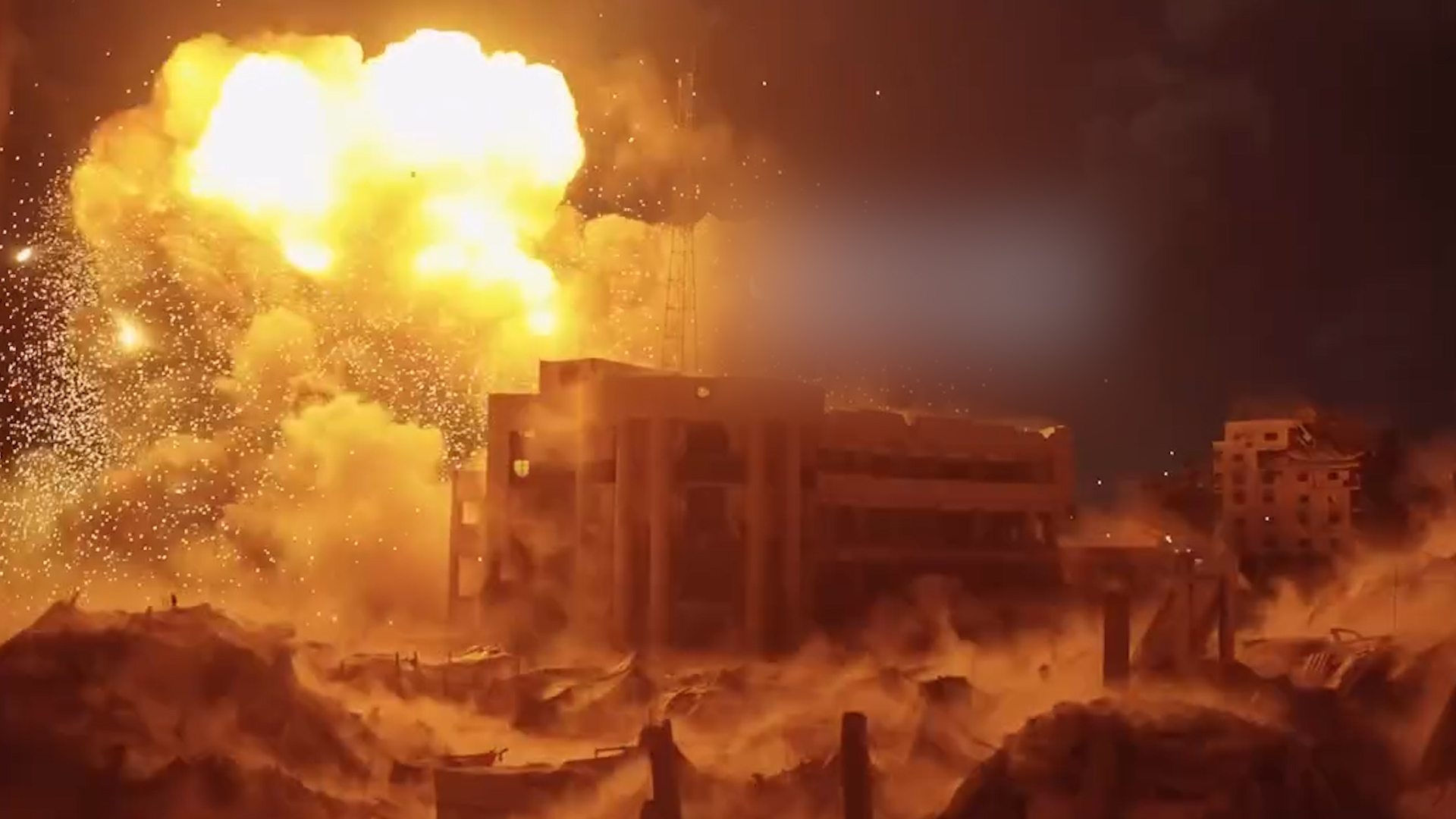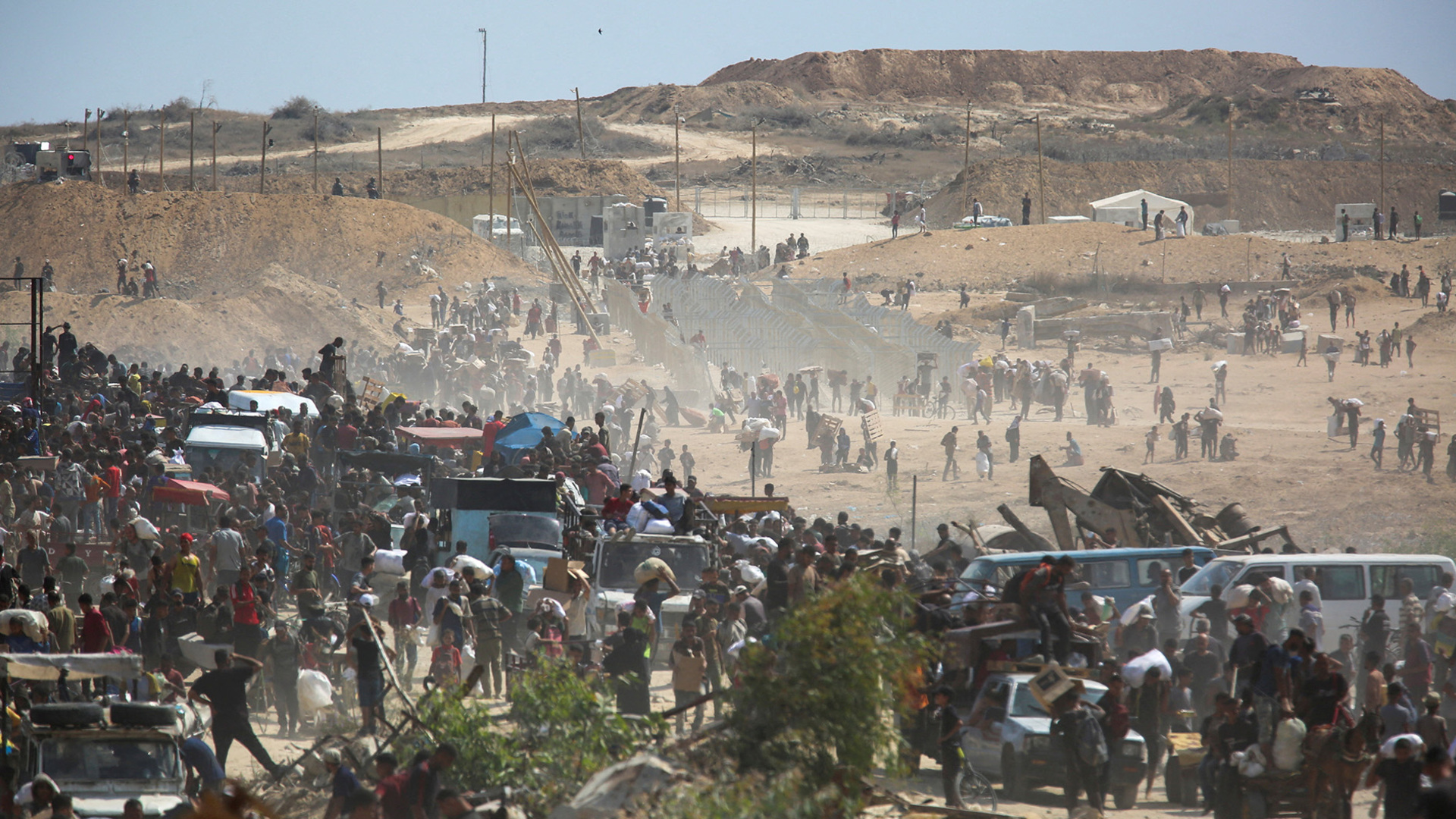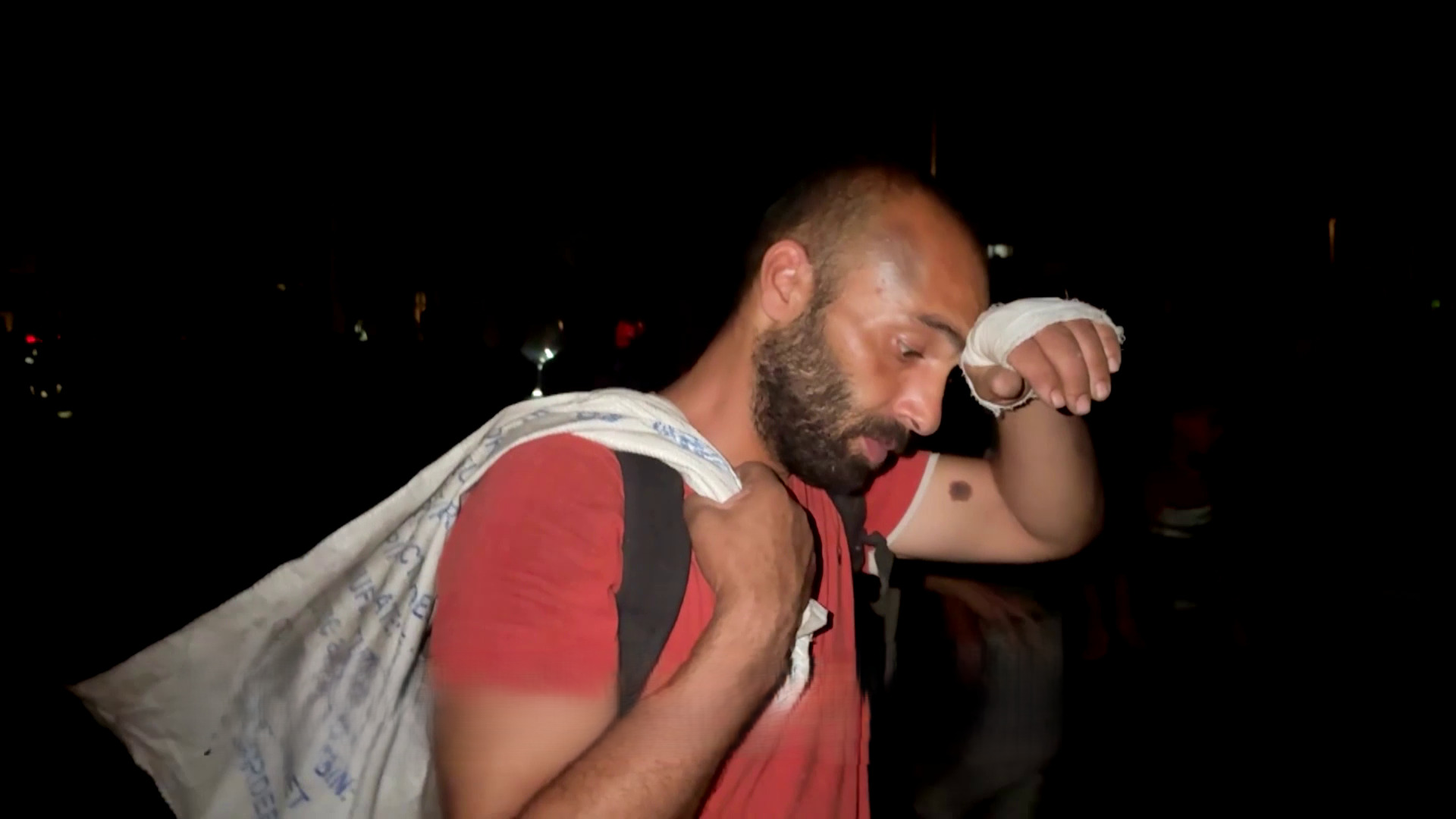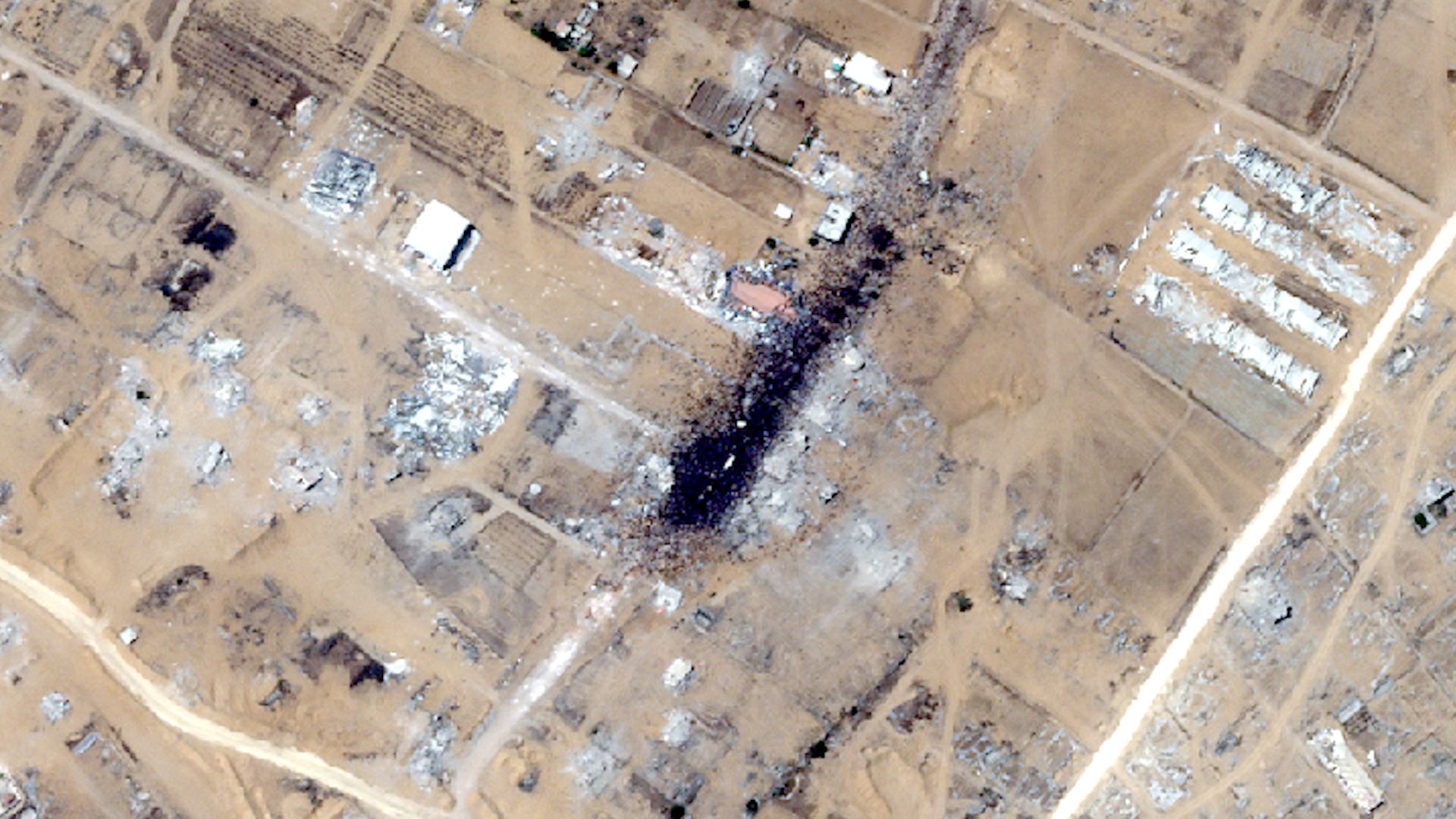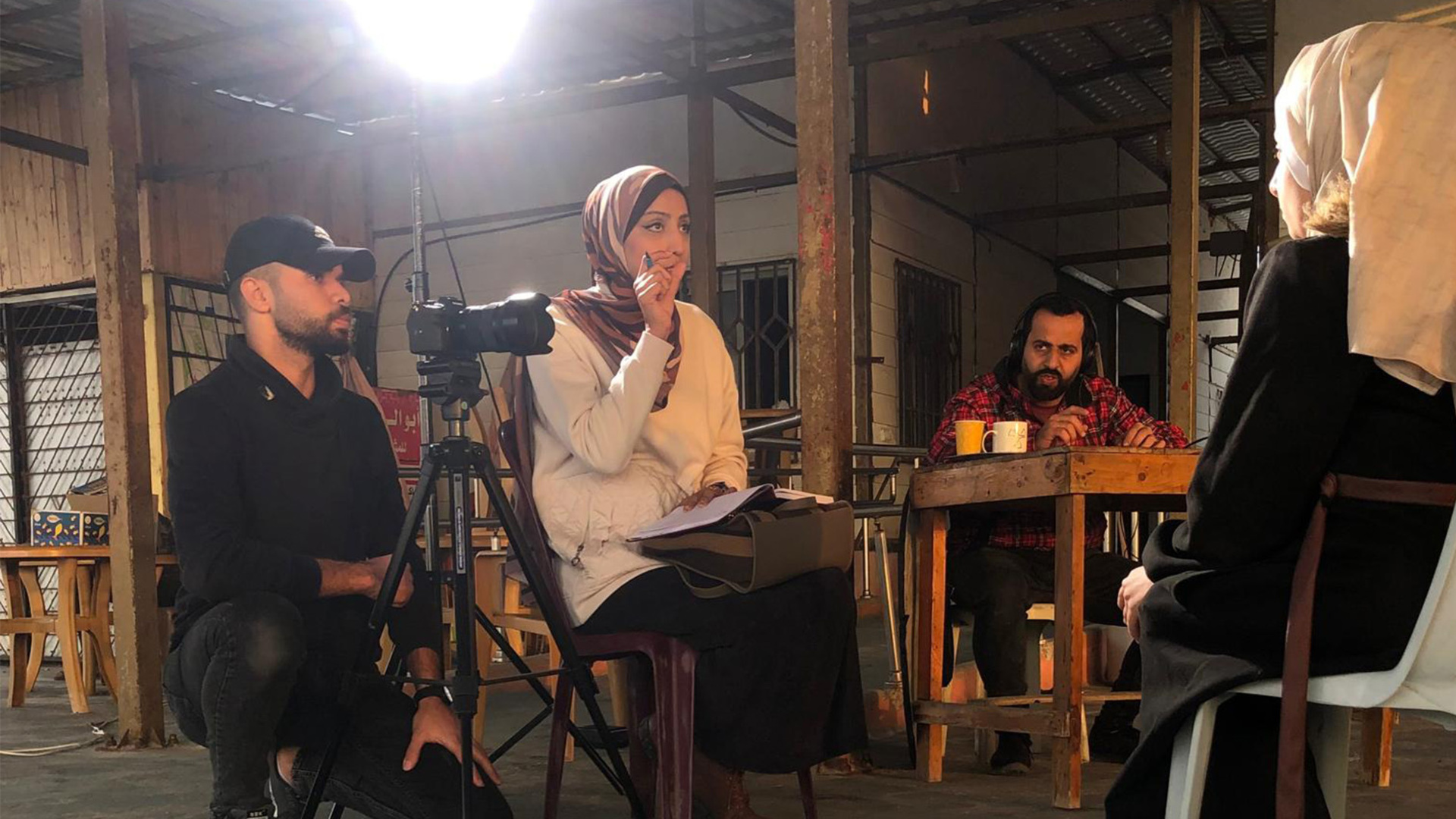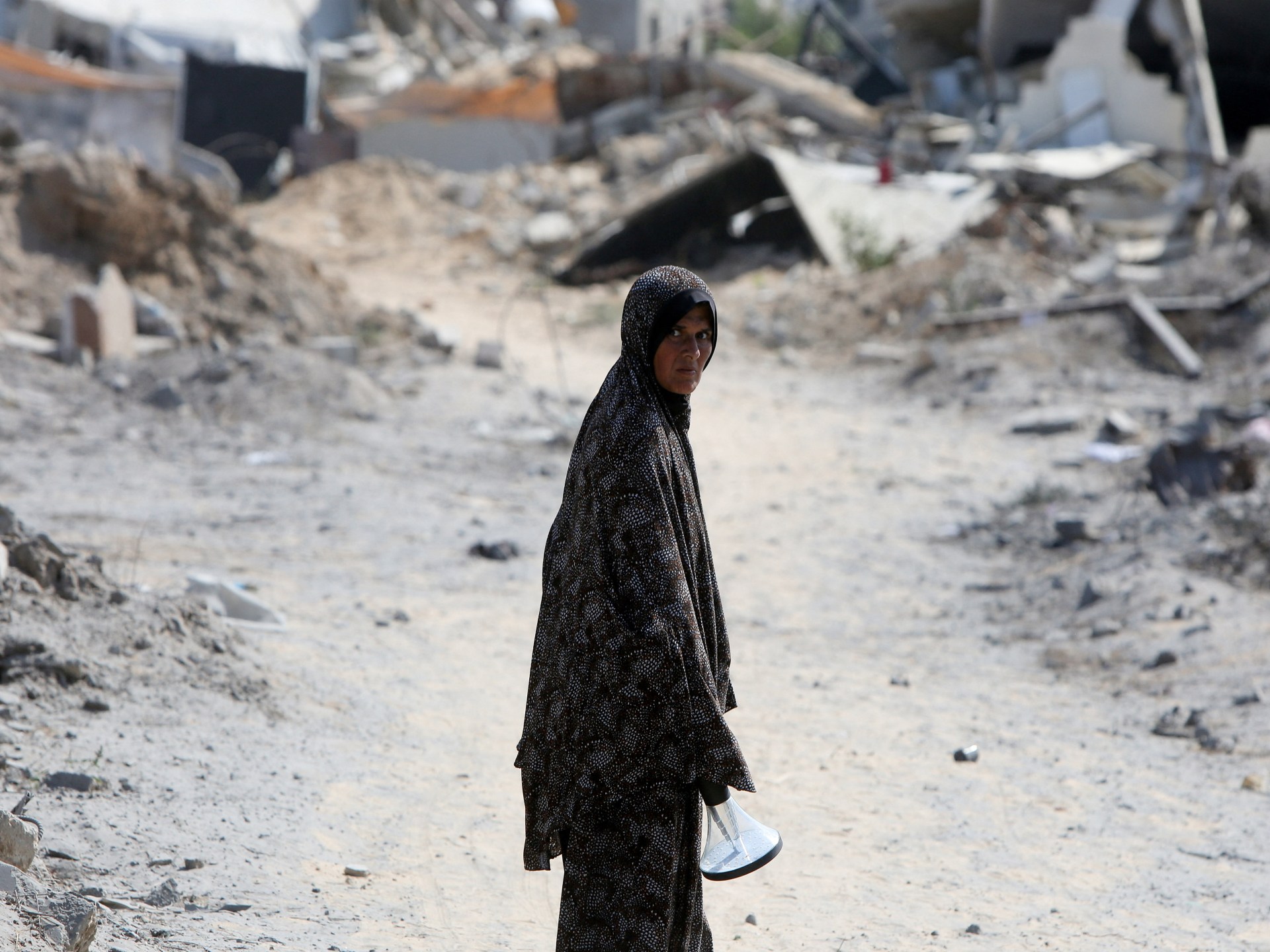Tributes, condemnation pour in for slain Al Jazeera journalists in Gaza | Israel-Palestine conflict News
An outpouring of grief and condemnation has followed the Israeli assassination of five Al Jazeera staff in Gaza, including prominent correspondent Anas al-Sharif.
The drone attack late on Sunday hit a tent for journalists positioned outside the main gate of Gaza City’s al-Shifa Hospital, killing seven people. Among the dead were Al Jazeera correspondent Mohammed Qreiqeh and camera operators Ibrahim Zaher, Moamen Aliwa and Mohammed Noufal.
Just hours earlier, al-Sharif, 28, had posted on X about Israel’s “intense, concentrated bombardment” on eastern and southern Gaza City. Known for his fearless reporting from northern Gaza, he had become one of the most recognisable voices documenting the ongoing Israeli genocide in the enclave.
Al Jazeera Media Network has condemned what it called a “targeted assassination” of its journalists.
Below are a few of the responses to the killing of Al Jazeera staff:
Palestine
The Palestinian mission to the United Nations accused Israel of “deliberately assassinating” al-Sharif and Qreiqeh, describing them as among the “last remaining journalists” in Gaza.
“They have systematically and dutifully exposed and documented Israel’s genocide and starvation,” the mission said on X. “As Israel continues to ethnically cleanse Gaza, its enemy remains the truth: the brave journalists exposing its heinous crimes.”
Iran
Iranian Foreign Ministry spokesman Esmail Baghaei has called on the world to hold Israel to account after the killing of the five Al Jazeera staff.
“A press badge is no shield against genocidal war criminals who fear the world witnessing their atrocities,” said Baghaei, accusing Israel of assassinating the journalists “in cold blood”.
“Strong condemnation is the bare minimum for any decent human being, but the world must act immediately to stop this harrowing genocide and hold the criminals accountable,” he added.
“Indifference and inaction are complicity in Israel’s crimes.”
United Nations
UN Secretary-General Antonio Guterres’s spokesperson, Stephane Dujarric, offered condolences to “the Al Jazeera family” and called for an investigation.
“We have always been very clear in condemning all killings of journalists,” Dujarric said. “In Gaza, and everywhere, media workers should be able to carry out their work freely and without harassment, intimidation or fear of being targeted.”

Al Jazeera Media Network has condemned “in the strongest terms” the killing of its journalists in a targeted assassination by Israeli forces.
In a statement, the network said the Israeli military “admitted to their crimes” and deliberately directed the attack at the journalists’ location. It called the assassination “another blatant and premeditated attack on press freedom”.
The strike came amid what Al Jazeera described as the “catastrophic consequences” of Israel’s ongoing assault on Gaza, including mass civilian deaths, forced starvation, and the destruction of entire communities.
The network called the killing of al-Sharif, one of Gaza’s most prominent reporters, and his colleagues “a desperate attempt to silence the voices exposing the impending seizure and occupation of Gaza”.

Committee to Protect Journalists
The Committee to Protect Journalists (CPJ) says it is “appalled” by Israel’s killing of Al Jazeera journalists.
“Israel’s pattern of labeling journalists as militants without providing credible evidence raises serious questions about its intent and respect for press freedom,” said the CPJ’s regional director, Sara Qudah.
“Those responsible for these killings must be held accountable,” Qudah added.
Jodie Ginsberg, CEO of the CPJ, recalled how Israel accused al-Sharif and others of being “terrorists” last October without evidence.
“We warned back then that this felt to us like a precursor to justify assassination,” she told Al Jazeera. “This is part of a pattern … going back decades, in which it kills journalists.”

Amnesty International
Amnesty International condemned the strike as a war crime under international law and remembered al-Sharif as a “brave and extraordinary” reporter.
In 2024, al-Sharif was awarded Amnesty International Australia’s Human Rights Defender Award for his resilience and commitment to press freedom.
“We at Amnesty International are devastated and heartbroken,” said Mohamed Duar, Amnesty International Australia’s spokesperson on the occupied Palestinian territory. “Anas dedicated his life to standing before the camera, exposing Israel’s atrocities against Palestinians, and documenting the truth so the world could bear witness.
“The courageous and brave journalists who have been reporting since the genocide began have been operating in the most dangerous conditions on Earth. At great risk to their lives, they have remained to show the world the war crimes being committed by Israel against almost two million Palestinian women, men and children,” he added.

National Press Club
Mike Balsamo, president of the US-based National Press Club, said the killing of journalists is “a loss felt far beyond one newsroom” and urged a “thorough and transparent” investigation.
“Journalists must be able to work without being targeted or killed,” Balsamo said. “All parties in conflict zones must honour their obligations under international law to protect reporters and ensure they can carry out their work safely.”
The Council on American-Islamic Relations (CAIR)
The Council on American-Islamic Relations (CAIR) has condemned Israel’s killing of five Al Jazeera journalists and called on US and international media workers to “stand in solidarity” with their Palestinian colleagues.
“Israel’s ongoing campaign of targeted assassinations of Palestinian journalists is a war crime, plain and simple,” CAIR National Executive Director Nihad Awad said in a statement.
“The murder of these Al Jazeera journalists is not an accident or collateral damage – it is part of a consistent, documented policy of silencing media voices and hiding the truth of the genocide being carried out by Israel in Gaza,” Awad said.

Since October 2023, Israel has killed 269 journalists in Gaza, in the deadliest conflict ever recorded for reporters.
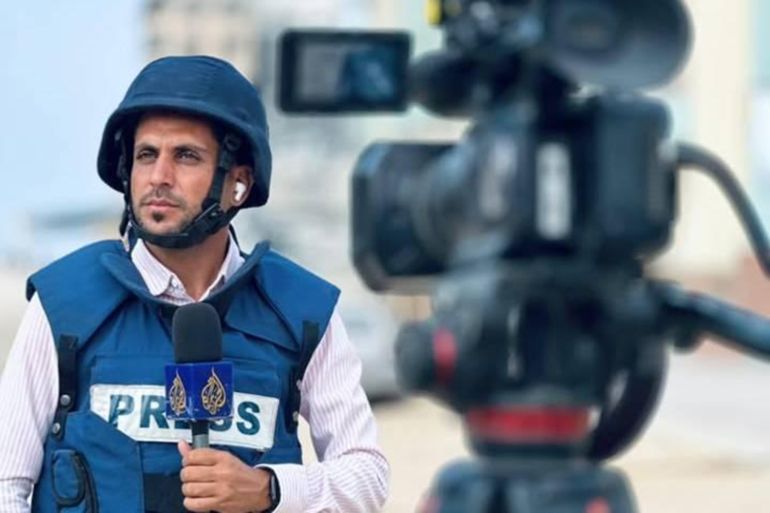
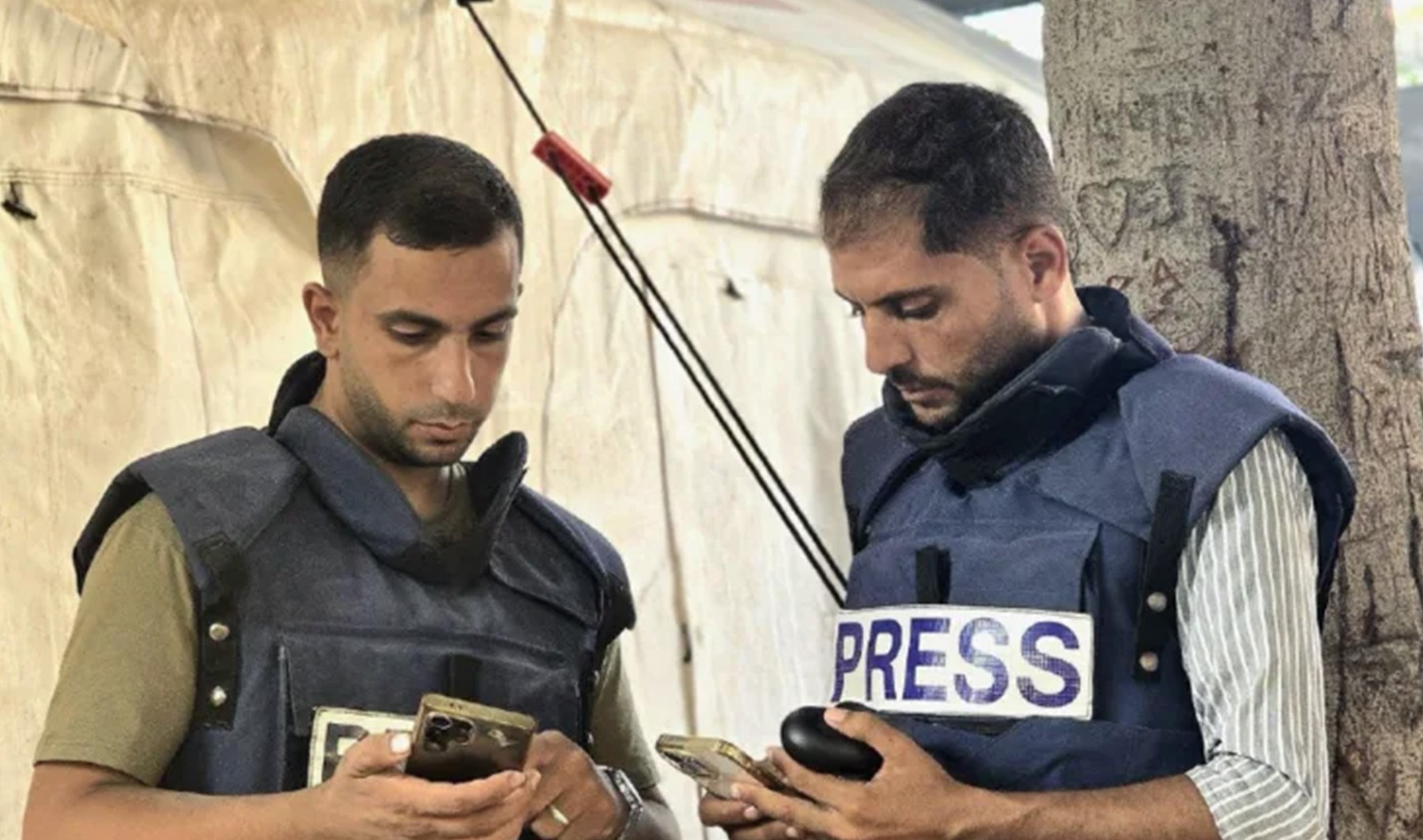
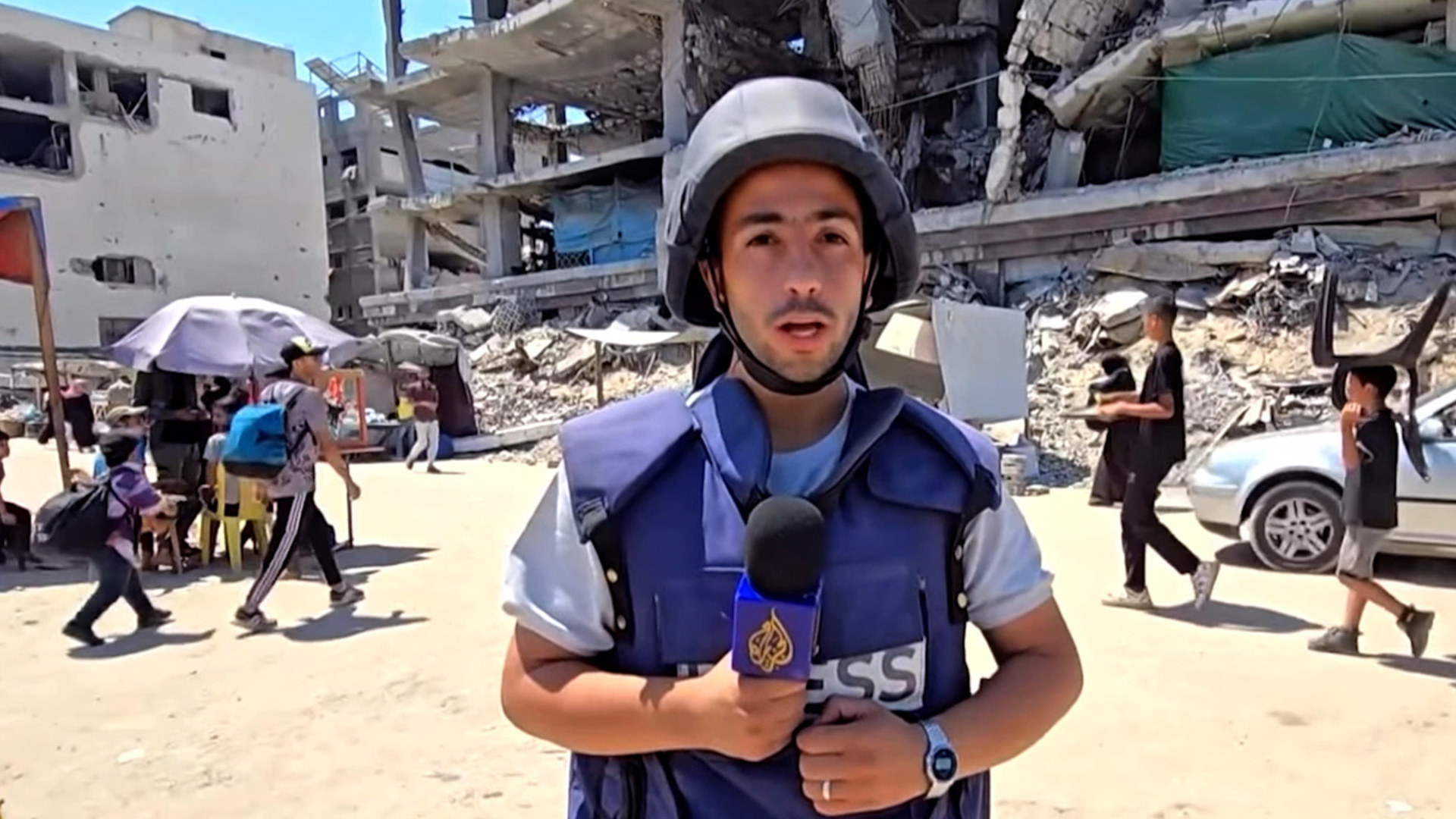
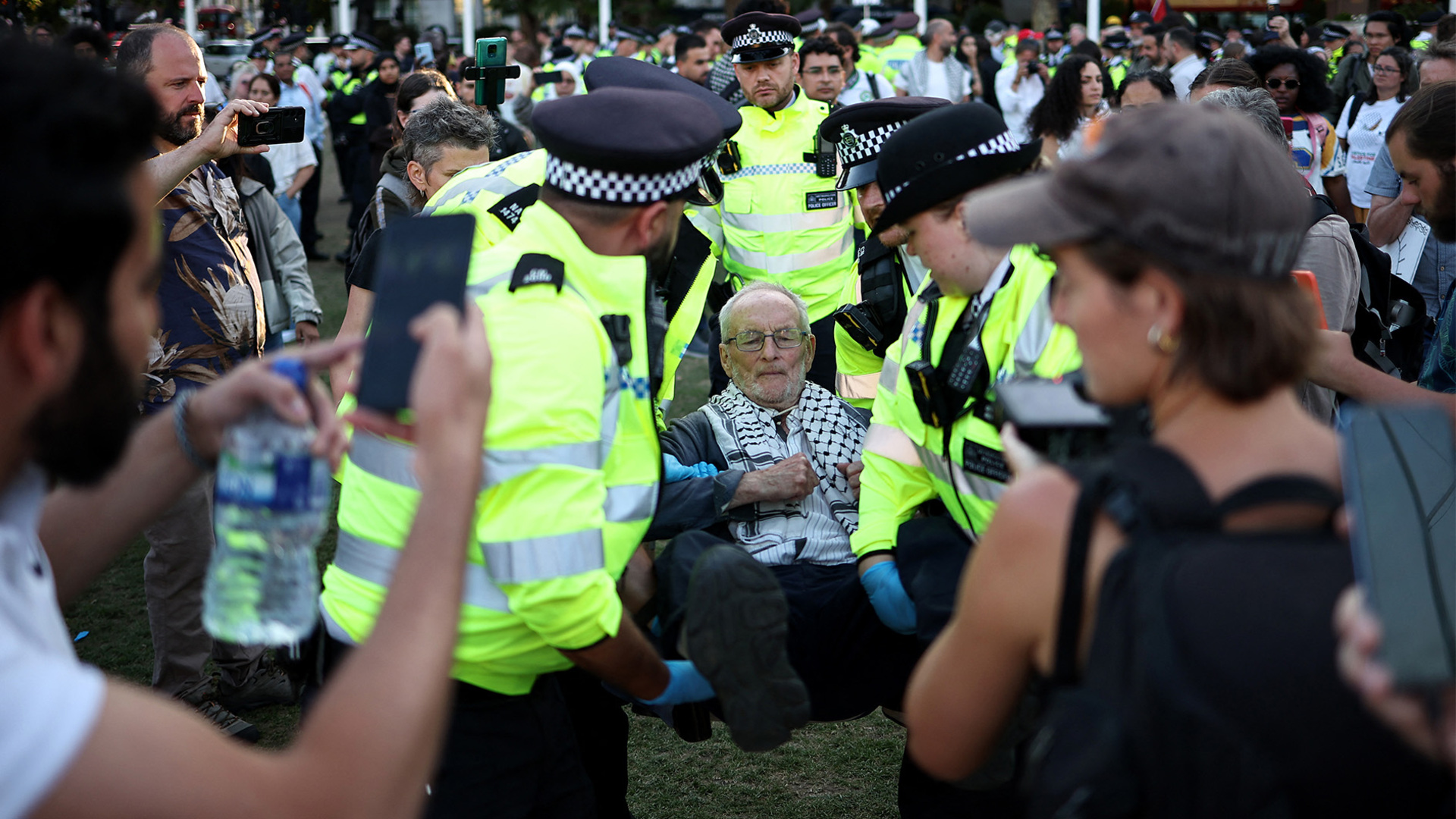
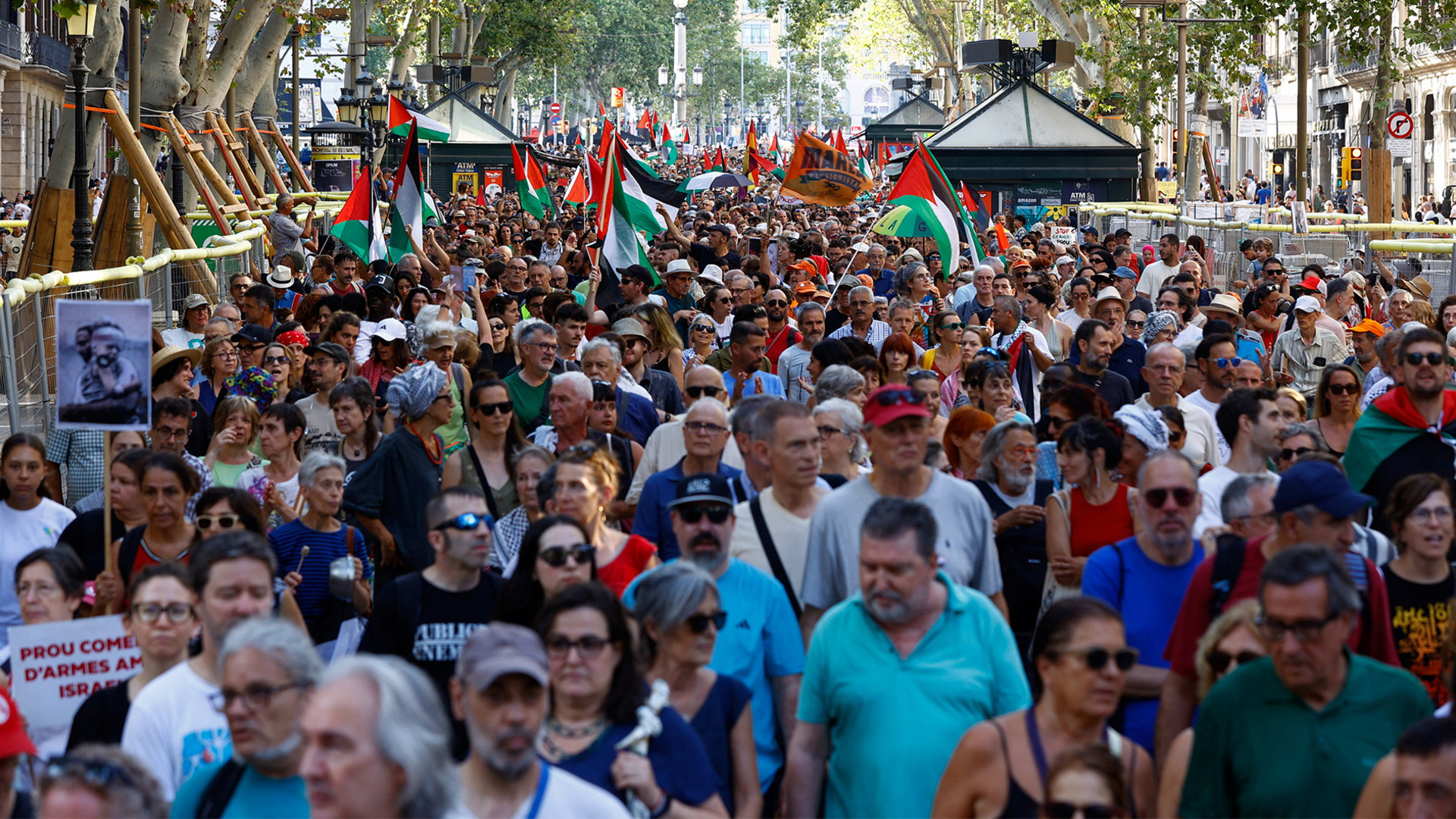
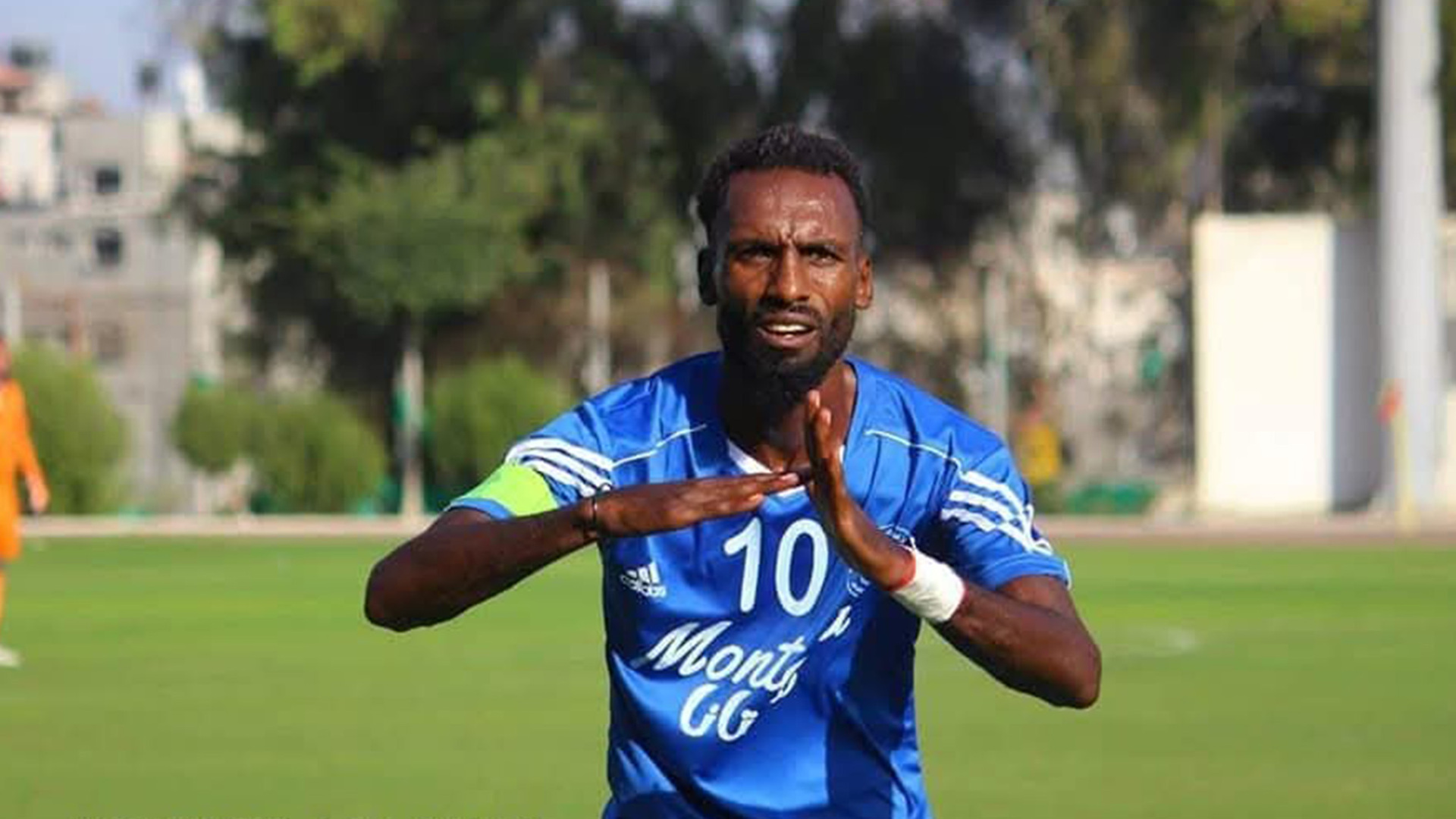
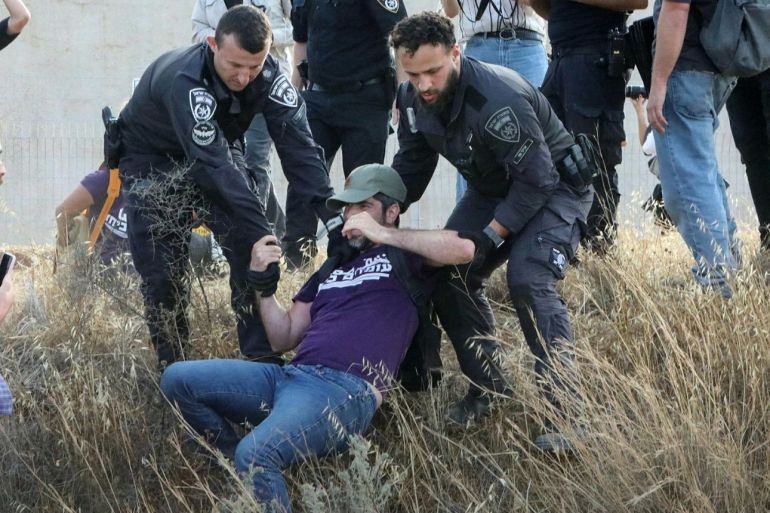
![Standing Together's Alon-Lee Green is arrested while protesting near the Israeli-Gaza border [Courtesy of Standing Together]](https://www.occasionaldigest.com/wp-content/uploads/2025/08/Standing-Togethers-Alon-Lee-Green-is-arrested-while-protesting-near-the-Israeli-Gaza-border-17479117.jpeg)
